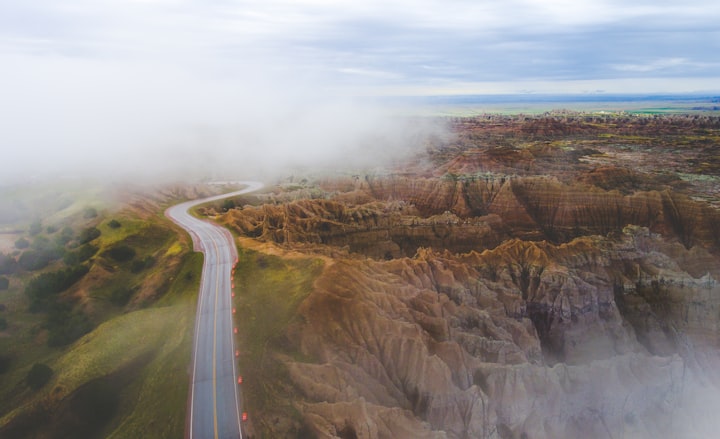Tabby Cat Investigations
Private Investigators

I'm a PI. When I use the abbreviated term PI, I get a lot of questioning looks from whoever asks me, "what have you gone to school for?" I explain that a PI, is a private investigator. Confusion continues to ride on their faces. "Basically, I am a detective on my own terms."
How did I find this career? It's a bit complicated.
In high school I was belittled. I felt inferior in the eyes of my peers. This was due to one teacher that singled me out. He was my math, science, physics, and biology-30 teacher.
In each of these classes he made me feel like an idiot, and that felt worse than being called one at home. He was also the teacher that told his students to leave whatever was happening to you at home at... well, home. Hard to do. If that which you are supposed to leave behind you, is following you were ever you go.
The reason this is relevant, is because this teacher also taught me forensics.
I brought his class samples of different kinds of animal fur, and shedding from reptiles (my home was full of animals). Then I was taken out of school for a short time. He asked me if I will be able to do the work at home. I said I had a microscope (which is true. I still have it). I used it to look at the samples I was given, but I couldn't figure out the calculations I was asked to make. I went to him later to ask how the calculations worked. Before I could, he cut me off, "you don't actually have a microscope, do you?" Which wasn't true. However, I didn't feel like proving myself to a teacher who made me feel like a joke.
I got a seventy five percent average in that class. If I had tried harder I probably would have passed with flying colors. However, I hated group work. That was the area in which I failed. I'm not bad at working with other people, it makes me nervous.
I knew I could do better. There was this nagging feeling that my intelligence would shine in this subject. I was determined.
Thus, the following year I asked my vice principle if I could take the next level up. He informed me, "Unfortunately, because your grade was a seventy five last year, we can't let you do the college level on your own." That was disappointing and discouraging. I felt a pain in my chest, as I said. "I'll just take the spare..." Then I left the office, feeling like my opportunities were slamming their doors in my face.
I can't begin to explain the amount of relief, and freedom I felt once I graduated. No more; teachers making me feel like I was their worst student. No more; awkward moments trying to ask questions, and feeling stupid for asking them. (Even when the class was told, "there's no such thing as a stupid question."). No more; belittlement, being singled out, or soul crushing spot light.
BEST. DAY. EVER.

I took two gap years after that. I worked in customer service working on my team building skills. I did end up learning that other people who work in these settings, are also bad at group work. It was refreshing.
While I worked at a grocery store, there was a man in a navy blue ball cap. He passed my department, and was generally at the entrance of the store every other day. I found out that he was employed by the store and that he was a resource protection agent. He would scope out the store, watching the customers incase they tried to steal. I was fascinated, because he wasn't known as a security guard.
I found a school called SCI, (Stratford Career Institute). They had online courses and among them was a private investigation course. I looked further into it and decided it was worth enrolling. The course it's self is based on the Virginia area of The United States. That's great... If I was living in the states, or planning to move there.
I found a Canadian course for Ontario. I called them to ask how taking the course for both private investigation and security would look for me. I was asked my address. Once I gave it to the receptionist, she asked me if I was moving to Ontario. I replied, "no. Why do you ask?"
The receptionist informed me "If you have a license in Ontario, you can only work as a private eye in Ontario. You can't use that license to work anywhere else in Canada but where you have received it." I thanked the receptionist for her help, and went back to my search for online PI courses.

I found Bow Valley College. I had looked there before, in search of an answer to my "what am I meant to do in life?" question.
Now, I am in search of my "Where can I get a private investigation certificate, and license in Alberta?" question. Turns out those are also two separate questions.
I was accepted into the course, and started making notes. I was participating in group discussions and getting a head start on my assignments. I fell in love with the course objectives and what private investigation was and is in Alberta. I had an average grade of eighty-five. I passed. I felt like I could have done it with a ninety-five average, but I was falling behind close to the course dead line.
Everything about private investigation, when I'm asked about it seems like uncommon knowledge. Thus, I am going to share some of what I've learned from my certification.

The definition of a Private Investigator is; A freelance detective who carries out investigations on behalf of private clients.
There are different types of investigations that PI's can do and/or participate in.
- Domestic Investigations (most dangerous).
- Adultery (prove or disprove if one partner is cheating on the other).
- Divorce/Separation (a PI will work with a lawyer during these cases).
- Child Custody.
- Missing Persons Investigation.
- Under Cover Investigation.
- Premarital/ Dating Background Investigations.
- Assets/Property Location.
- Lawsuits/Bankruptcy.
- Associations, Clubs, Churches.
- Insurance Investigation (Fraud).
- Automobile Accidents.
- Business security.
Private Investigators are hired to prove, or disprove something their client has hired them for. For the sake of every one involved in the case private investigators must remain objective, and keep their opinions to themselves.
An investigator is responsible for themselves, their client, anyone involved in the case (co-workers, friends, family), and the target.
For example; A client could come to an investigator looking for a missing person. At the same time claiming to be that missing persons father when they might not be. This is why investigators need to investigate all personnel involved for the sake of everyone's safety.
When a PI is investigating a person they have limited data bases to get information. They will make phone calls while making white lies about who they are and why they may be calling. In other circumstances, private investigators can buy the information. For example; if there is a car accident and an investigator needs the police report for their case (client), they can purchase it from the police.
Investigators cannot carry firearms, but they can arrest someone. Most arrests made by PIs are in grocery stores, when an individual is stealing. An investigator has to confidently approach the perpetrator from behind, state who they are, say why he/she is being arrested, and summarize their rights. For example; "You don't have to say anything if you don't wish to do so. Anything you do say may be used against you in court. Do you understand?"
An investigator then needs to take the perpetrator to the stores main office and notify the police. It's important to note, that the perpetrator should never be left alone while waiting for the police.
Investigators while making this arrest cannot 'pat down' an individual. Unless there is reason to believe they have a weapon on them. This is because the individual being arrested can claim that the private investigator was physically/sexually assaulting them. PIs also need to be fully aware of where the perpetrators hands are. This is for the purpose of reading body language. They need to know seconds before if an action is going to be taken. For instance, the perp could reach for something to harm the investigator with. They may fight the investigator themselves, or run away.
Over all, I received a eighty-eight in this part of the course.

The next section of my course taught me about the different types of surveillance there are in investigation.
- Covert (hidden).
- Overt (not hidden. Ex. Security Guard).
- Foot (following a target on foot).
- Stationary/Fixed (parked outside targets house or work).
- Moving (following a target in a car).
- Team (uses 4 cars and 2 way radios).
It's important to mention that private investigators have their own code of ethics. Just as police officers and nurses do. Each province and state have their own code of ethics for private investigators. In Canada it can be found on the provincial websites, including the cost of a license in that area.
surveillance is a tricky subject, because it can be seen as an invasion of privacy, stalking and harassment. That is why a code of ethics exists.
You can surveillance people in the ways I mentioned above. However, once the neighbors start to get agitated, the police notice you, or your target is aware of your presence it's time to terminate it. If an investigator does not terminate the surveillance they could be put on trial themselves.
It is illegal to do investigations in any area without a license, and it is illegal to intercept and record a phone call between two people. Unless one of those people is the investigator.
In Alberta, only one person consent is needed to be recorded. Which means; there could be the client and the investigator. Only the investigator has to consent to the recording if he/she doesn't think the client will agree to being recorded. It is morally ethical to let all parties know that they are being recorded though.
Different spy gear can be purchased online or at specific stores in larger cities. There is a spy gear store in Calgary Alberta. This includes disguised cameras, bugs, recording devices, night vision, etc.
Bugging and debugging are types of surveillance investigators help with as well. Bugging with clients, and this has its restrictions too. No cameras in locker rooms, bathrooms, or changing rooms. Basically, anywhere someone might get naked.
Investigators are used to find illegal bugs too. When this happens investigators are asked to testify in court about their findings.
When testifying in court an investigator should look directly at the jury and say "I do" when being asked to take the oath. Address the judge as sir or ma'am, then wait for the 'okay' to speak to them. A woman who is an investigator should dress in a black conservative fashion (nothing flashy). A man who is an investigator should dress in a navy blue conservative fashion. This dress code is based off being taken more seriously, than being dressed in other attire.
Only original photos, and video footage is admissible in court as physical evidence from surveillance. An investigators accountability is also judged by the look of their report taking skills. Grammatical, spelling errors, and messing writing can be seen as unprofessional. If this is what an investigators note pad looks like, the jury and judge may doubt what they are saying to be true.
At the end of this section I received an eighty-five percent grade

The last thing I'm going to share about private investigation is the different interview techniques I was taught.
Private investigators do not interrogate people. However, they do conduct interviews. During my parents divorce I was interviewed by a PI. I had no idea that's what he was. Now that I do know that, it was pretty cool.
Investigators will get more answers to their questions when they ask open ended questions. when trying to obtain a confession from a suspect, there are effective methods taught in advanced interview courses.
Here are some examples of open ended questions; Tell me what you like about your job? What do you like about working there? Describe what happened? Where would you like to start?
Here are some examples of closed ended questions; Do you like your job? How tall was she? Who saw it happen first? What color was the car?
Closed ended questions have one word answers. Open ended questions will lead an investigator into more questions. This will give a bigger picture as to what happened, and how.
While conducting an interview, an investigators should remain professional, calm, empathetic, polite, thorough, and have good communication. Especially while trying to obtain a confession. (There are also rules and regulations in regards to getting a proper written confession, which can be found on provincial websites).
Here is a list of different techniques used when interviewing suspects:
- Everybody's doing it. ("Don't think you're the only one who's thought of stealing from their employer.")
- Blame the employer. ("I'll bet the managers steal as much money as the staff does.")
- Appealing to intelligence. ("You're a bright guy, and we all make mistakes.")
- Dealing with a third party. (Telling a suspect that the incident can be solved at a store level before having to involve the police.)
- Publicity technique. (Suggesting that reporters like that kind of story. In the hopes that the suspect would rather tell the investigator and people he knows, his side of the story).
- Suggestion technique. (Investigator will ask if the suspect was intoxicated, if it was a dare, if there was a divorce, or an illness in their family.)
- Good guy bad guy routine.
- Bluff statement technique. (Uses two people. One person being a by stander. The other being the suspect. An investigator will take the by stander into a room to question them, but won't actually question them. Then escort the by stander out of the room in thirty minutes, passing the suspect and loudly stating, "thanks, I think that clears things up.")
- Accident mistake technique. (Interviewer will convey that the suspect is a victim of circumstance, and that it could have happened to anyone.)
- Get stuff back technique. (Investigator will point out that the main concern for the employer is to get their product back. Then ask the suspect to take them to the merchandise.)
- The list technique. (investigator writes down a list of things taken and asks suspect to write their own list. Then will see what adds up and what doesn't.)
- Name on the file technique. (Suspect thinks you already have all the answers.)
- Mistaken conclusion technique. (Purposefully state something that didn't happen, and will get the suspect to correct them on the events.)
In this section of the course I received a ninety-five percent grade.

There are more sections to the course I've taken. In the last section I was taught how to make my own business as a private investigator. I passed this section with a ninety percent grade. I played around with names of the business if I were to start one, and Tabby Cat Investigations was one of the names I came up with. I never would have thought of that until one of my cats passed away. He was one of my best friends and I thought that would be a way to honor our friendship.
My life has changed for the better, and private investigation is behind me.
I have a little family now, and this career is dangerous. It's not suitable for my quality of life. So, why not share the knowledge I've learned, especially if I'm not going to use it anywhere else.

Thanks for reading!
If you liked this article give it a heart and/or a tip.
Have a great day/night!
Be safe out there!
About the Creator
Amber Fierce
I am a Canadian author. I get most of my inspiration from adrenaline spikes. From participating in extreme sports to going on dopamine enducing adventures. A lot of my ideas come from my dreams, and my songs come from my personal struggles.






Comments
There are no comments for this story
Be the first to respond and start the conversation.